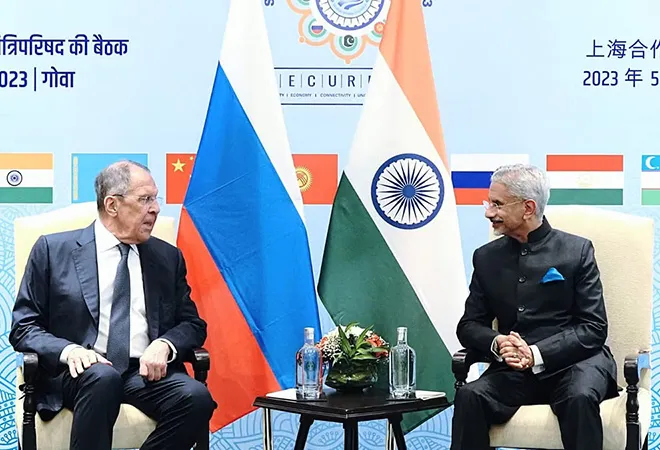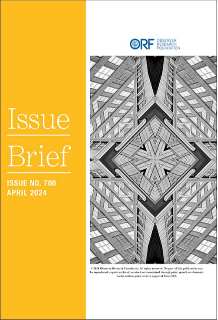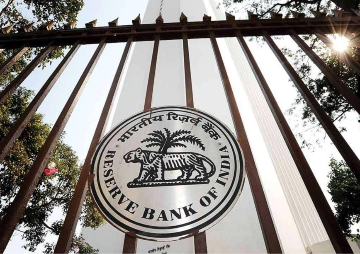External Affairs Minister S Jaishankar was quick to react by advising EU policymakers to examine their own laws. Drawing attention to EU Council's Regulation 833/2014, he argued that, "Russian crude is substantially transformed in the third country and not treated as Russian anymore."
Amid growing concerns in Europe that sanctions against Russia have not had the desired effect so far and no end to the Ukraine war in sight, India's trade ties with Russia will continue to be under the scanner. What has been remarkable, however, is that despite continuing differences between Europe and India on the Russia-Ukraine conflict, their bilateral relationship has not suffered so far. This was also reflected in the remarks of the European Commission Vice President Margrethe Vestager, when she underlined that the EU would have a discussion with India on the issue of India's oil trade with Russia, "but it will be with an extended hand and of course not with a pointed finger".
Amid growing concerns in Europe that sanctions against Russia have not had the desired effect so far and no end to the Ukraine war in sight, India's trade ties with Russia will continue to be under the scanner.
Borrell is also aware of how Europe itself is implicated in this whole affair. After all, European nations are buying this oil from Indian refiners. He alluded to this when he said that, "If they
sell, it is because someone is buying. And we have to look at who is buying." The EU can go after those nations that are buying this oil from India and solve the problem, but it realises that it is easier said than done.
European economies, already under pressure due to the ongoing war, have little appetite to further tighten their austerity belts. While the European public has so far been largely supportive of Ukrainian war efforts and the concomitant support that is needed from European capitals, policymakers recognise that this can turn on a dime and that a delicate balancing act is needed to keep this support intact.
From the very beginning of this conflict, India-Russia ties have been under the scanner and New Delhi has been robustly defending its relationship. Last year, Jaishankar had reminded Europe that India's "trade with Russia is at a very small level—$12-13 billion, in comparison to European countries. We have also given the Russians a set of products ... I don't think people should read more into it other than the legitimate expectations of any trading country to increase its trade."
Since the start of the Russian invasion of Ukraine last February, India's crude oil imports from Russia have seen a huge increase, almost 10 times by some estimates, thereby making Russia India's top source and, at the same time, making India one of the biggest exporters of crude oil to European nations. From around 2% in 2021, Russia’s share in India's annual crude imports rose dramatically to almost 20% after the Ukraine conflict.
The West had tried to target crude oil exports from Russia without much success so far. The G-7 nations also put a price cap of $60 per barrel on Russian crude but that ended up making India and China big beneficiaries of the discounted oil that Russia was willing to offer to these nations. For an emerging economy heavily dependent on imported oil like India, shunning Russian oil was never an option. And China is looming large as well, with Russia overtaking Saudi Arabia to emerge as China's top oil supplier earlier this year.
As the G-7 nations meet in Japan, Ukraine remains the focus of their attention with Ukraine's President Volodymyr Zelensky also attending the summit in person to rally the G-7 in continuing to support his nation. The U.S. has pushed for increasing sanctions on Russia and the U.K. has already taken the lead by announcing bans on Russian exports of diamond, copper, aluminium and nickel, hoping to target Moscow's ability to fund the war in Ukraine.
Underlining their commitment to "starve" Russia of G7 technology, industrial equipment and services that support its war machine, the G-7 leaders in Hiroshima have decided to take measures to restrict the export of items "critical to Russia on the battlefield".
The G-7 nations also put a price cap of $60 per barrel on Russian crude but that ended up making India and China big beneficiaries of the discounted oil that Russia was willing to offer to these nations.
Prime Minister Narendra Modi will also be at the G-7 as one of the special invitees along with Australia, Brazil, South Korea, Vietnam, Indonesia, Comoros (representing the African Union) and the Cook Islands (representing the Pacific Islands Forum).
While it is unlikely that New Delhi will be asked directly to change its Russia policy, the message from the G-7 would be one of solidarity with Ukraine as they further tighten their sanctions regime vis-à-vis Russia. India will be there to remind the West once again that it is playing an important role in the global oil market in not only keeping the prices on an even keel but also ensuring that China—the most significant strategic challenge to the West over the long term—does not get to become the only beneficiary of western withdrawal from Russia.
This commentary originally appeared in BQ Prime.




 PREV
PREV


